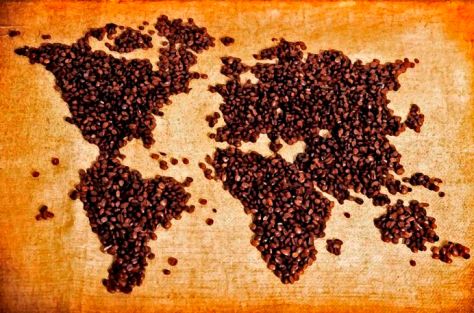
Written by Valerie Lopez
The political turmoil embroiling Northern Africa and the Middle East affects the rest of the world in a multitude of interesting ways.
China is currently harnessing state power to suppress dissent in order to prevent a similar grassroots-led movement against the government. Late night pundits and morning anchors are in constant dialogue about the possibilities of democracies in the Arab world.
But these uprisings aren’t just affecting Americans as spectators, but as consumers as well. The chaos in Libya has spiked gas prices up to $3.50 per gallon, yet another blow to US consumers still recovering from the Great Recession.
As a country, we can no longer afford a dependency to oil. While there are blossoming technological alternatives to fossil fuels, we still need to curb our gross energy consumption for political, economic, and environmental reasons.
Amanda Little, author of “Power Trip: The Story of America’s Love Affair with Energy,” recently wrote an op-ed article in the New York Times with an innovative suggestion to curtail our overall energy consumption. Like the food industry, the oil industry can be changed by consumer choices.
Little asserts that when food products publish their trans-fat and caloric amounts, Americans in general make better decisions about their food purchases. In 2007, when food manufacturers were required to provide saturated and trans-fat content, 95% of supermarket products were reformulated with healthier fats to anticipate consumer preferences for healthier choices.
This is just an example of how consumer habits can change the markets. Similarly, with Little’s suggestion, Americans can start making informed decisions when the activities they partake in and the products they purchase can be labeled with a similar energy consumption intake. Our fast paced lifestyles are morbidly glutinous when it comes to energy consumption, and the effects have been externalized from the cost.
Gross depletion of natural resources, pollution, climate change—these are only a few examples of the worldwide disease from too much energy consumption. The only way we can overcome our over-dependence from oil, is to become enlightened consumers. Just as nutritional labels inform the way we eat, energy labels can shape our daily activities into daily contributions towards a healthier planet.
But let me go back to the subject of political turmoil. In the book “Hot, Flat, and Crowded,” Thomas Friedman makes a correlation between the price of oil and the relative amounts of civic freedom experienced by the local population of oil-exporting nations. While the correlation isn’t exact science, the interpretations are no less interesting.
When the price of oil is high, civic freedoms of the people are relatively low. Friedman theorizes that because governments find natural resources so lucrative, they have less motivation to invest in their people, much less their welfare. The wealth derived from oil does not get distributed fairly on a national scale. Now, when oil demand is high, oil prices spike upwards. While we enjoy our own civic freedoms, what do our oil-consuming habits mean to the welfare of a population across the globe?
I admit it’s very hard to experience empathy when another person’s suffering is so distanced from us, even nearly effaced. And in such a case, we can also consider how our consumption habits are affecting us too, and not just in gas prices.
On March 6th 2011, the front page of The Seattle Times highlighted the plight of Costa Rican coffee farmers and their depleting coffee production as a direct result from climate change. Coffee exporting countries are facing lower yield productions, which can no longer keep up with the world wide demand for coffee world wide. What will happen when a global coffee shortage hits? Will we ironically awaken from the slumber of political apathy?
Coffee trees, evolved to thrive in tropical climates (and in Costa Rica’s case, microclimates) are suffering from the radical changes to Costa Rica’s climate. Erratic rains, droughts and temperature changes have contributed to a dramatic increase in pests and plant diseases, early blooms, withering trees, and thus an overall blow to production yields.
Roberto Mata, a producer for Starbucks who runs a co-op in Costa Rica, is worried about the steady trend of coffee decline.
“Some people do not know what we are suffering. They can go shopping and buy a bunch of items and throw them all away, and they can sit in their cars for six hours and think it’s not affecting somebody. It’s affecting somebody.”
In the next couple of days, The New York Times illuminated the strife of Colombian coffee farmers, whose coffee production has also been slashed by record high temperatures.
Countries that mainly export coffee derive a lot of national income from their products. When climate change affects coffee quality, not just yields. Coffee aficionados in richer countries snub poor quality coffee, which adds to the plight of coffee growers. When income is low, investment in community development dips, and the overall quality of life spirals downward.
Again, these relations aren’t an exact science, but we can see the saddening trends. Our habits affect someone else in the world—even at this very moment, while you’re reading this blog entry and consuming energy.
Times are changing, and the calls to heroism are inextricably tied to our everyday quotidian choices. Riding your bike, or walking, or eating locally grown food can make a huge difference in the lives of people unknown and distant to us.
Our choices ripple across the world. Being an ethical consumer means making informed choices, and this is where the demand for transparencies from governments and industries can be so powerful.
As we consumers wield the power to change markets, we also wield the power to change the world, one good decision at a time.